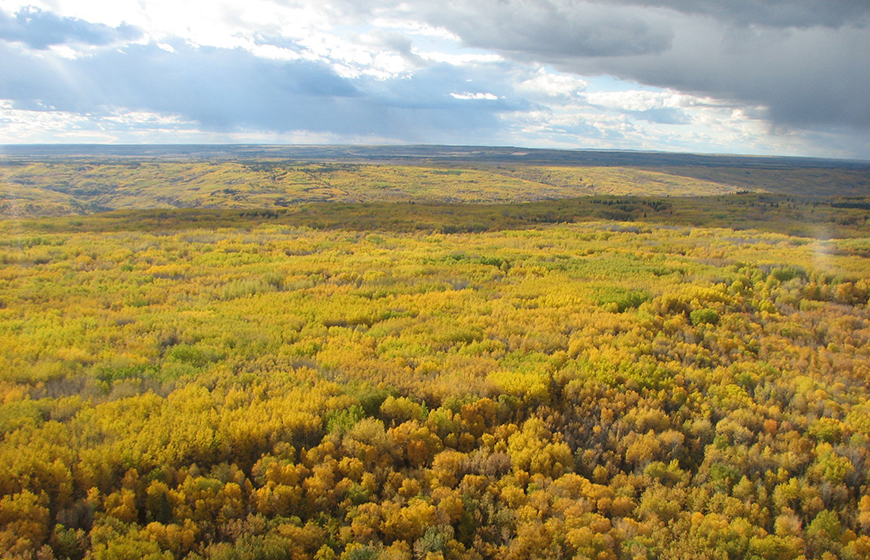
The world's boreal forest is critically important for our climate on Earth and Canada is home to 30 per cent of it.
Canada's boreal forest is the central star of a forest ecology conference that will bring some 200 forest scientists and managers from across the continent to Edmonton.
The conference, which takes place every second year, allows forest ecologists, silviculturists, wildlife biologists and other forest researchers to exchange the latest research in forest ecosystems within North America, and to improve their understanding of those systems' sustainable management.
Focusing on the boreal forest was the logical choice for an event that for the first time is occurring within the boreal forest region, at the University of Alberta's Lister Conference Centre June 19 through 22.
In light of a rapidly changing climate, it is becoming increasingly pertinent to understand how to adapt management in our forests, said Simon Landhäusser, one of the organizers of the 11th North American Forest Ecology Workshop.
"The boreal forest is a huge forest biome that is critically important for our climate on Earth," he said.
After the tropical forest, the boreal forest is the Earth's second largest terrestrial biome and Canada is home to about 30 per cent of it, said Landhäusser, a professor in the Department of Renewable Resources.
The boreal forest is vital to global climate, carbon sequestration, water and air quality, and a diversity of unique wildlife species, but it is, like many other forests, also a significant industrial resource.
"We have all these different users in the forest areas-in Alberta our forests are heavily used for forestry and by the energy sector," said Landhäusser. "There is quite a bit of demand on our forest, but it provides also all these other ecological functions that we depend on. We have to balance the maintenance and protection of our forests with what we do in our forests."
With a significant number of speakers coming from the Department of Renewable Resources, the conference underscores the department's recent ranking by the Centre for World University Rankings as fifth among 26,000 forestry schools worldwide.
It also provides a great opportunity for graduate students to shine and liaise with their professional colleagues, said Landhäusser.
Among the four keynote speeches, Lena Gustafsson of the Swedish University of Agricultural Sciences will cover forest conservation and restoration, and forest geneticist Sally Aitken of the University of British Columbia will address what to plant in a changing climate. Breakout sessions include research presentations about forest fires, wildlife and invasive species, forest management, restoration, and climate change. There is also a special session devoted to how to communicate science-relevant in an era when a commitment to address climate change has been weakened.
"It's about making sure that people understand that the goal of science is to be objective and being able to effectively communicate it," said Landhäusser.